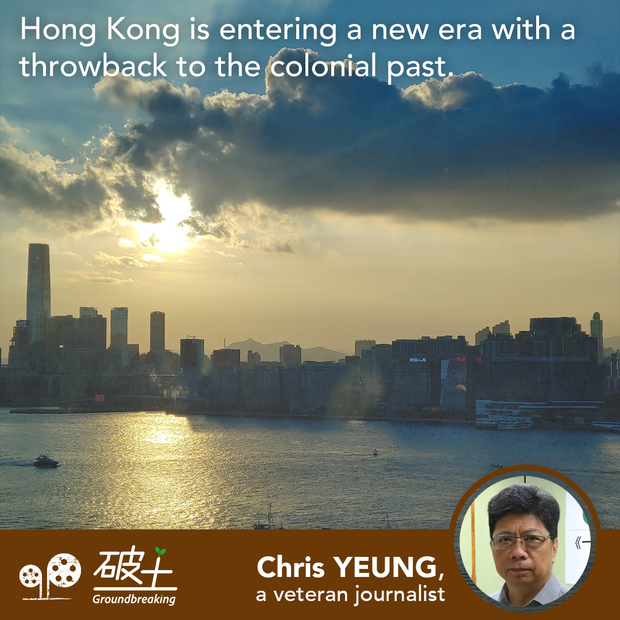Xia sets agenda, give tasks in HK trip

Even without a crystal ball, it is not difficult to foretell the governing agenda of the John Lee administration following the six-day-long visit of Xia Baolong, China’s top official in charge of Hong Kong affairs, in the city last Tuesday (18/4).
Thanks to the remarks given by Xia and other senior mainland and Hong Kong officials at a national security education day event on April 15, it has become crystal-clear that upholding national security remains the first and foremost task of the Hong Kong SAR government, overriding civic rights and liberties. Forget about the rhetoric of Hong Kong now moving from order to prosperity.
Following Xia’s trip, the John Lee administration looks certain to speed up a list of legislations and policy initiatives that are instrumental to safeguarding security at both state and domestic fronts.
If there have been conflicting messages about the timetable of the Article 23 legislation earlier, Lee has indicated clearly that he will get the job done by the first half of next year at the latest.
Although security minister Chris Tang has earlier said there will be public consultation over the legislation, analysts said the proposed bill will be much harsher than the bill initiated by former chief executive Tung Chee-hwa, which was subsequently shelved after the July 1 protest in 2003.
The Government will also roll out its proposal about how to combat misinformation, or fake news that officials have often referred to.
The two major pieces of legislation are integral parts of the legal framework that the authorities are hoping to help safeguard security.
The legislative task will go in tandem with vigorous enforcement of the laws on national security and seditious publications by the Police and the national security team as they have been doing so since the national security law was enacted in July 2020.
If there had been hopes that Beijing might slightly soften its grip of security in Hong Kong to create a more relaxed environment for social harmony and economic recovery, they were dashed after Xia and mainland and Hong Kong officials stuck to hardball tactics in their speeches.
In harshly-worded speeches, Xia described the 2019 social movement as “colour revolution”, warned against “resurgence of street violence” and reminded officials to keep vigilance over “hostile forces.”
His remarks about demonstrations and rallies showed clearly his hard-hitting warnings are not empty rhetoric, but no-nonsense orders given to the Lee team for them to deliver.
Although new regulations have already been dictated by the Police to some groups who had held rallies in recent weeks, Xia sought to further dampen the enthusiasm of people taking to the street by saying “holding rallies is not the only way for the public to express their views.”
Xia was not stating the obvious that the public do have other ways to express their views. He was giving a clear message that the public should not hold rallies and demonstrations to express their views because doing so could pose threats to order and security.
In his response to Xia’s comment, John Lee has renewed a warning that protests could be “hijacked” by others with ulterior motives. Those who are unsure about whether they are capable of ensuring their rallies are under control should better not hold a rally at all, according to Lee.
It has come as no coincidence that the Federation of Hong Kong and Kowloon Labour Unions has withdrawn their application for a no-objection permit from the Police for a rally marking the May 1 International Labour Day.
On the political front, Xia has set out Beijing’s basic line of thinking about elections and what they deemed as democracy, stressing that Hong Kong should develop “quality democracy.”
Citing Xi’s notion of “whole-process people’s democracy,” Xia dismissed Western democracy that was based on votes as undesirable. Hong Kong, he said, should pursue “whole-process people’s democracy,” putting emphasis on consultation in every step in the policy-formulation process.
Xia’s remarks marked a significant departure from the original thinking and design of Hong Kong’s gradual democracy with full universal suffrage for both the chief executive and all legislators as the ultimate goal stipulated in the Basic Law.
Under the original thinking, the switch to full universal suffrage should be gradual and orderly and the process of the democratisation of the election system taken step by step.
Coined as China-style democracy, the system that Xia has hailed is intriguingly and ironically closer to the undemocratic system adopted by the British colonial rulers in Hong Kong in and before the 1980s through appointment system and consensus-politics based on consultation.
Hong Kong’s half-democracy has already been seen as a roll-back following Beijing’s revamp of the Legislative Council and Chief Executive election systems in 2021. Xia’s lecture on China-style democracy does not augur well for the upcoming review of the district council system. Another step backward in democracy with the revival of appointed seats looks imminent.
Hong Kong is entering a new era with a throwback to the colonial past.
▌[At Large] About the Author
Chris Yeung is a veteran journalist, a founder and chief writer of the now-disbanded CitizenNews; he now runs a daily news commentary channel on Youtube. He had formerly worked with the South China Morning Post and the Hong Kong Economic Journal.